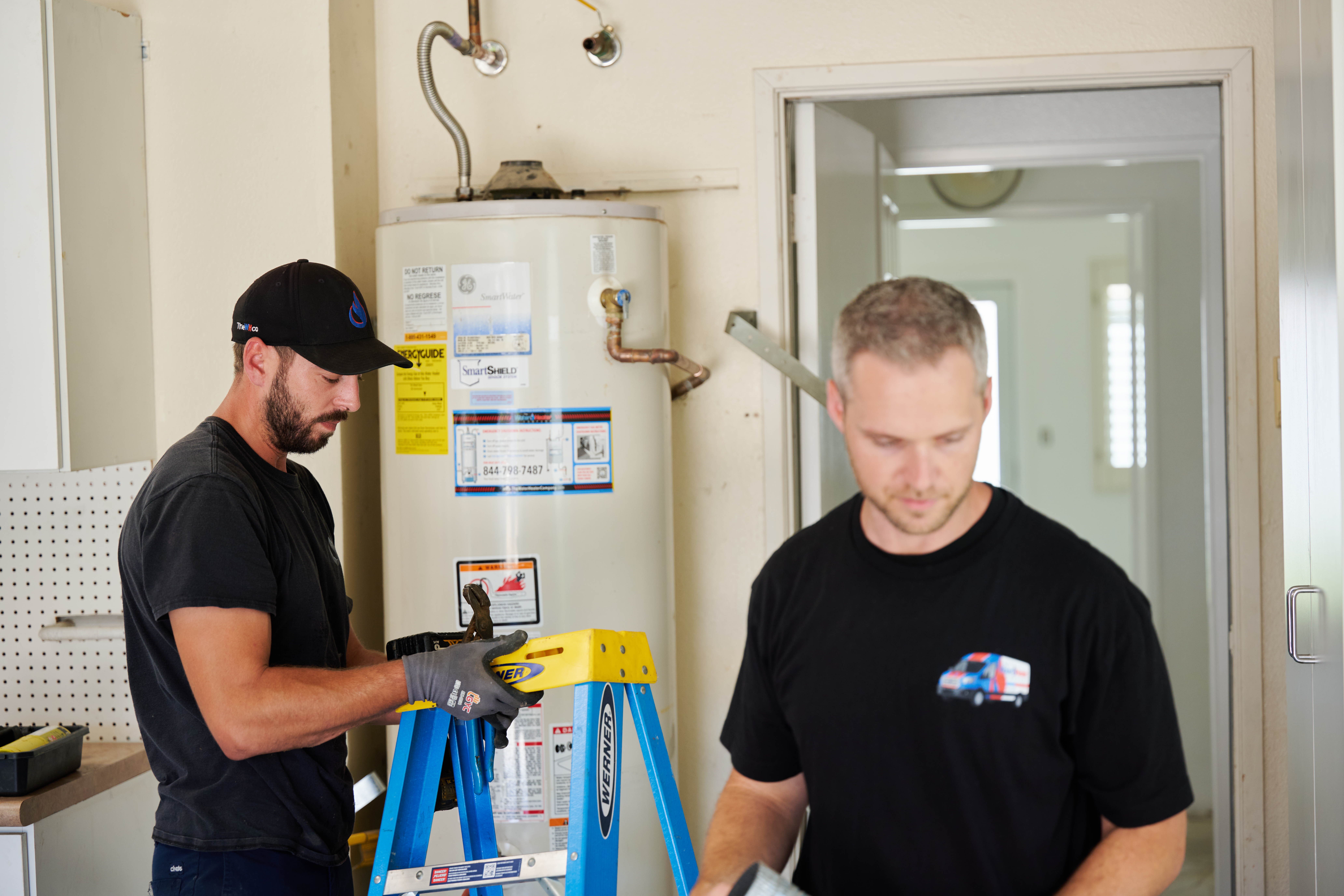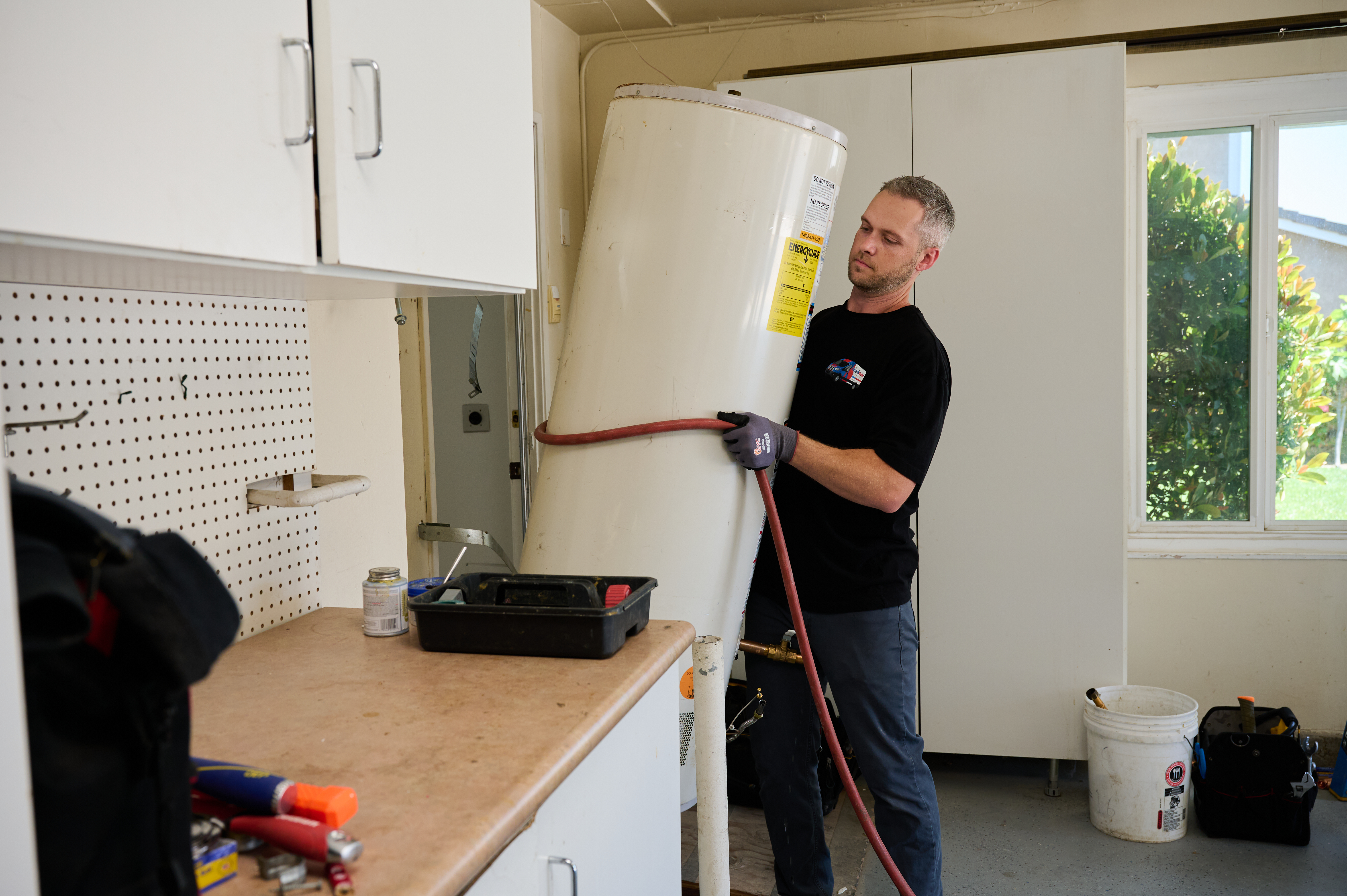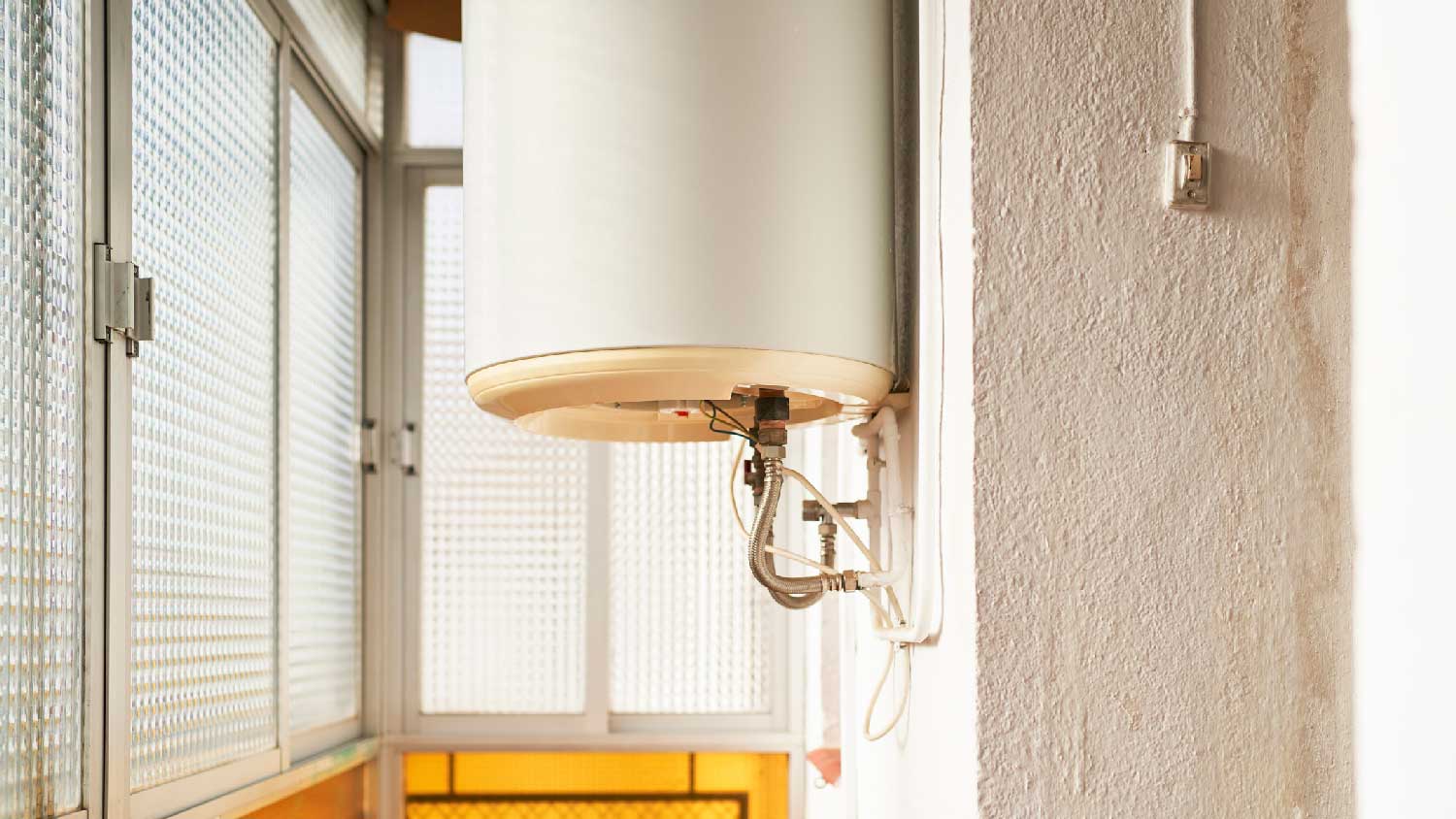
Learn about the different factors that go into water heater gas valve replacement costs to see if you should DIY the project or call a pro.
See how these tankless water heaters stack up against each other


Condensing tankless water heaters cost more than non-condensing water heaters.
Non-condensing tankless water heaters are less energy efficient than condensing water heaters.
Consider your budget when choosing a tankless water heater.
Make sure that you have enough space for the size of a tankless water heater.
Always hire a professional to install a water heater.
If you’re ready to swap out a conventional water heater, choosing a tankless water heater is a solid investment. According to Energy Saver, tankless water heaters are 8% to 34% more energy efficient, depending on your water consumption and the type of tankless water heater you choose.
To help you decide, we’ve rounded up condensing vs. non-condensing tankless water heaters to show several key differences worth considering before you hire a local water heater pro to install a tankless water heater.

| Type of Difference | Condensing Tankless Water Heater | Non-Condensing Tankless Water Heater |
|---|---|---|
| Design | Contains a secondary heat exchanger | No secondary heat exchanger |
| Energy Consumption | Energy-efficient recycling system | No energy-efficient recycling mechanism |
| Size | Larger size | Smaller |
| Cost | Higher cost | Lower cost |
| Maintenance | Higher maintenance | Lower maintenance |
| Lifespan | 15–20 years | 15–20 years |
While both condensing and non-condensing tankless water heaters produce hot water on demand, several differences could make either one the best tankless water heater for your home, depending on the circumstances. Let's break down these differences to help you decide which water heater is right for your home.
As the name suggests, a condensing tankless water heater uses condensation as part of the heating process. This water heater has an extra heat exchanger to recycle heat and continuously heat cold water, and provide hot water to your home.
Unlike condensing tankless water heaters, non-condensing water heaters lack that extra heat exchanger. This means that heat is not recycled. Instead, any heat leaves the unit through a ventilation system, which releases the gases outside your home.
Since condensing tankless water heaters recycle and reuse heat produced through combustion, they’re far more energy-efficient than non-condensing tankless water heaters. With a non-condensing water heater, a large amount of the energy generated to produce the heat goes to waste without that secondary recovery.
The size of your water heater plays a role in determining whether you can even have that water heater in your home in the first place. Condensing tankless water heaters take up more room than non-condensing tankless water heaters due to their additional heat exchangers. This could be an issue for smaller homes or homes that don't have enough space to accommodate a larger unit.
Tankless water heaters cost anywhere between $1,400 and $3,825 on average. Since condensing tankless water heaters contain an extra mechanism for recycling heat, they tend to cost more than non-condensing tankless water heaters.
At the same time, condensing tankless water heaters consume less energy, so you will save some money on the cost of your electric bills. These savings help offset the upfront cost of your condensing tankless water heater in the long run.
You also need to factor in the cost of installing the venting unit for a non-condensing tankless water heater. The venting uniting costs more than ventilation for a condensing tankless water heater due to the condensing tankless water heater’s cooler exhaust gas.
Tankless water heaters don't generally require much maintenance. Still, it's important to keep in mind that condensing tankless water heaters require more maintenance because they have that extra heat exchanger and a more complicated design. Non-condensing tankless water heaters don't need a drain, but condensing tankless water heaters do need you to know how to drain a water heater to remove excess condensation. On average, the cost to flush a water heater runs $150 to $250 for tankless units.
Both condensing and non-condensing water heaters have a lifespan of 15 to 20 years. To ensure your water heater lasts as long as possible, perform proper maintenance and have a professional inspect and service it annually.

Every home is different, making it a little tricky to know which tankless water heater is the best fit for your home. To determine which tankless water heater is best for your house, ask yourself the following questions:
What is your budget?
How important to you is maximizing energy efficiency and energy savings?
Are you prepared to maintain and drain a condensing tankless water heater?
How much space does your home have to accommodate a tankless water heater?
From average costs to expert advice, get all the answers you need to get your job done.

Learn about the different factors that go into water heater gas valve replacement costs to see if you should DIY the project or call a pro.

Looking to replace or upgrade your water heater? Use this water heater replacement cost guide to see what the work will cost and what factors affect your total.

A water heater flush costs $160 on average but can vary based on the unit size, type, labor, location, and more. Keep reading to learn how much you could pay.

There are many parts of a hot water heater. The type you need to deal with depends on your water heater. Here's what each part does.

Installing a recirculating pump on a water heater is an involved job, and one only seasoned DIYers should attempt. Learn how to tackle this job below.

Your water heater is a powerhouse until it’s not! Use this guide on how to flush a tankless water heater to keep it running smoothly and providing hot water.